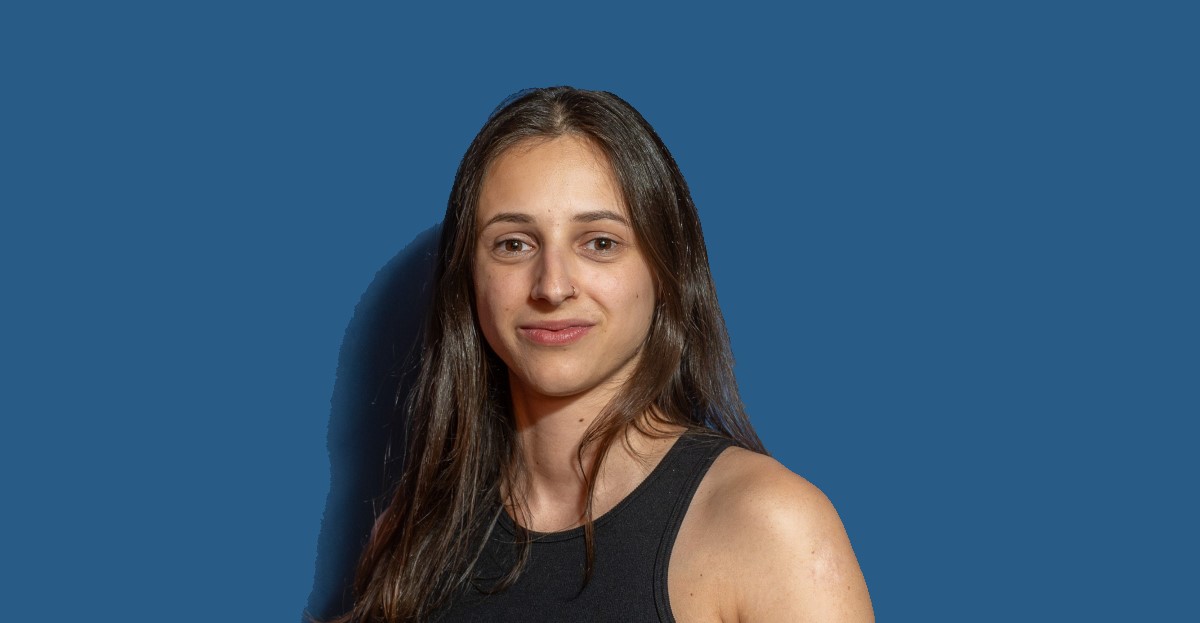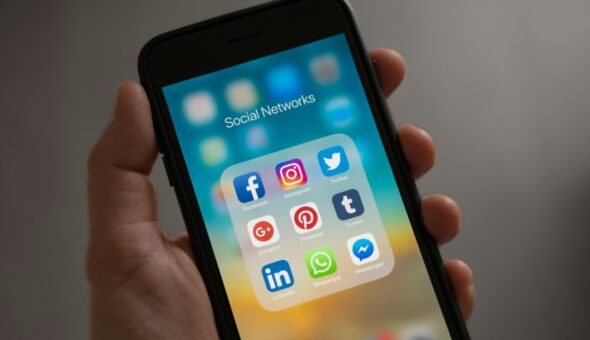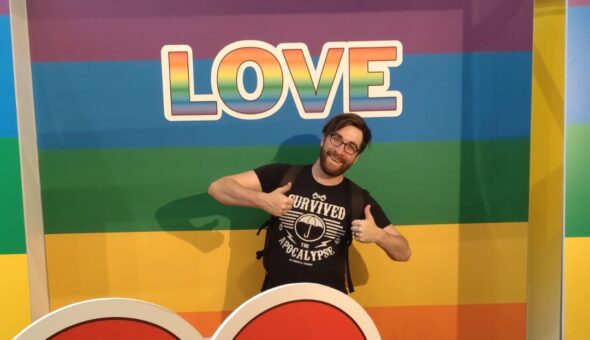Dessi is a member of the Bath Institute for Digital Security and Behaviour, and has recently started the third year of her PhD. She tells us about her research on how people move between different digital spaces and the impact this has on online communities.
What drove you to choose Bath for your PhD
I did my undergrad here in psychology. I always knew I wanted to do a PhD, but I took a bit of time out because I wanted to work for a little bit, get some experience and also find the right place for my PhD. Funnily enough, I actually got a job here in the School of Management, working as a research assistant for the Centre for Research and Evidence on Security Threats (CREST).
I really enjoyed working with the team – including my now-supervisors Dr Olivia Brown and Dr Joanne Hinds. Everyone I worked with was very open, interdisciplinarian and driven. So when I was looking for PhDs, I was like, 'What are the options?’ Nothing really compared.
It seemed like a good fit in terms of the topic, as well, and I really appreciated that I knew what I was getting into. Bath is a gorgeous city, too.
What is your research topic and how did you decide on it?
My topic is on multi-group membership, identity and online communities. I focus on how people navigate their selves online. I've always been interested in different facets of the self – how we are in different contexts and different parts of our lives.
But the thing that really interested me is the fact that the digitisation of our world can change how we navigate online as well as offline.
I’ve specifically applied this to extreme contexts, including how that enables people to be radicalised, how people engage with extreme communities and how misinformation is spread online.
What initially sparked your interest in the topic?
I think my psychology background came into play, because I've always wanted to understand how people navigate different spaces.
I'm also of that age group where we saw the growth of digital stuff suddenly implemented into our world and it was a very sharp switch from being kids outside to Twitter, Reddit, Facebook. All of these things came into play all at once when I was a teenager and I saw the massive shift that had on how we socialise, how we interact with each other, how we keep in touch.
It had a really profound impact on me and I genuinely think on society, as well.
What are your findings so far?
I've done a couple of projects so far. My first one was focused on seeing when people start interacting with multiple spaces. There's a lot of work on [how they interact within] one specific space, but I was quite interested to see how people are interacting with multiple communities.
I think they inevitably end up bringing information from one to the other, and that's not something that's accounted for in the current literature.
How does one community become more extreme? How are these more extreme subgroups created by moving ideology between spaces? We find that if people are engaging with one community, they're probably engaging with many others.
My second project focused on the manosphere, which is made up of five ideologies. But what we find is that a lot of the time people are engaging with multiple communities and ideologies. I'm currently working on figuring out how they navigate those spaces and what that means for information being passed from more extreme to less extreme communities, or vice versa.
You'll see some men's rights groups that are founded in legitimate collective action movements, such as concerns around paternity leave or awareness of violence against men – but those people will also be interacting with more extreme communities that are very much founded in misogynistic stances. It means that there is more extreme content being shared in less extreme spaces.
A lot of times, a platform’s response [to a toxic community] is to shut that community down. But they're forgetting the fact that people will also be in another, different community, so extreme communities may quickly reemerge. I think this has profound implications for how we navigate removing harmful spaces.
What are the implications of these in a real-world setting?
I think there are two key things. The first is within the extremism space. I am interested in applying my findings to these issues that impact all of us: they feel like immediate threats, even if they're not. It feels like it's everywhere, all the time.
I hope that my findings will be applied in a way to prevent or reduce harm, especially in the context of the broader societal and government agenda on reducing violence against women and girls.
There is also work to say that people engage with multiple communities online because they want social support. They want to diversify how they see the world; they want support on health or with their workplace; they want people to talk to about their hobbies and stuff. So there's also a broader wellbeing aspect to it and that's the bit we want to emphasise, too.
What advice would you offer to others studying or considering a PhD?
I think everyone says to study something you enjoy. However, an extra thing I would say is: study something that you think is meaningful. It's good for you to enjoy something, but if you think that something is meaningful, you feel more of a need to complete it, to contribute to the broader world.
Also, read non-academic things. I think it's important to also understand what the general public reads and perceives the world as, because then you can figure out how to sell your research and convince other people that what you do matters.
Respond



